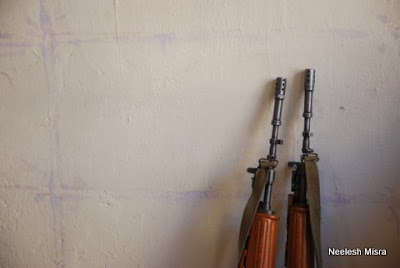
The prime minister reacted to the crisis on August 28, ten crucial days after the flooding began. Too few military rescuers have been sent by New Delhi, and too late.
State police are missing from rescue and relief sites. There is a complete collapse of support from local government and panchayat officials.
Relief distribution is so unplanned and tardy that the able-bodied get relief again and again, and the weak watch helplessly.
The cataclysmic flooding in Bihar, the worst in India’s modern history, isn’t the national calamity. It is what is unfolding now.
Eighteen days after India’s most notorious and unpredictable Kosi River suddenly breached an embankment and changed its course uprooting millions of people, thousands remain trapped in homes, crushed in poorly resourced relief camps or just sleeping hungry on the road. It is a stunning indictment on how India’s central government, the Bihar administration, and local and international NGOs reacted to the tragedy that has touched the lives of at least 25 million people.
Across the misery-seeped expanse, there are no facilities set up to help trace missing people. No trauma care facilities. There are no international NGOs, who have in the past complained that India did not give them access in such situations.
“The prime minister came here and called it a national tragedy. If this is how our nation reacts to this tragedy, this is just a cruel joke on us, isn’t it?” said Giraj Rishi Yadav, as he sat in a relief camp after walking the whole morning in waist-deep water.
A jeep appeared with food packets from a local donor. Hundreds mobbed it. Hands lunged inside. Men and women screamed and fought over plastic bags.

An old skinny woman with white matted hair got crushed near the bonnet. Another woman had her blouse ripped as the mob pushed her.
An old man wept, desperate he couldn’t fight his young competitors. “First we lost our lives. Now we are losing our dignity,” said Mohammed Saleem, 47, of Chandpur-Bhangha village.
In the chaos, seven-year-old Salauddin tugged at this reporter’s denim jeans. “Can I please get food? I haven’t eaten,” he said, matter-of-fact. Two reporters from HT and NDTV lunged into the crowd to get him a packet.
An hour later, breaking the deathly silence of the submerged Sukhasan village, a mobile phone ring echoed on a rooftop. Sarita Kumari, 21, took the call from an Hindustan Times reporter.
Behind her, the conversations of about 100 people could be heard, trapped on the roof for ten days now. “We are trapped here, Sir… What shall I say about myself? We are all sitting here for ten days now. Not a single boat has come here to evacuate people or with relief,” she said, the phone line faltering.
It began raining.
“We sleep here. We eat here. We sing prayers. When it rains, we go down and stand in the water. Then we come up again. We eat sattu (powdered fried gram) to survive,” she said, her voice choking. “We told the headman, at least give aid to the Dalits and the poorest, if not us – he said ‘what can I do’?”

If the day brings out the worst face of the governments, the night brings out the worst in the humans. Robbers are roaming the submerged villages in the night, robbing homes of whatever jewellery, grains and possessions they can loot.
“Locals are telling us, there are a lot of robberies in the night. We have been trying to check the local boats,” said Lt. Commander Geo Matthews of the Indian Navy. Behind him, a woman walked in her bridal dress, a bright red and yellow sari with brocade. “That’s all I had left,” said Ranjana Devi.
Back at Chandpur-Bhanga, seven-year-old Salauddin was quietly walking away, his eyes lowered. He had a large packet of rice in his skinny hands.













